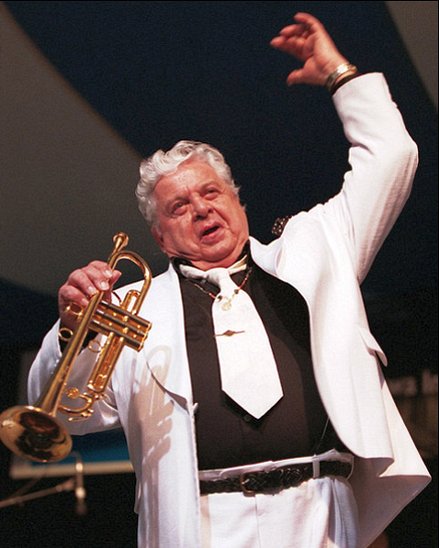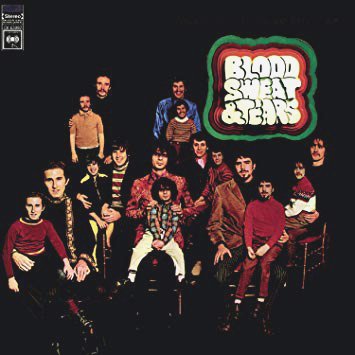Blood, Sweat & Tears: Al Kooper (lead vocals, piano, organ), Fred Lipsius (alto sax, piano), Randy Brecker and Jerry Weiss (trumpet, flugelhorn), Dick Halligan (trombone), Steve Katz (guitars), Jim Fielder (bass guitar, fretless bass guitar), Bobby Colomby (drums, percussion) and orchestral ensemble. From the album This Is Father to the Man (1968).
Blood, Sweat & Tears is an American jazz-rock band that started out being very promising, captivating critics and listeners, and selling nearly six million records in three years. Throughout its history it has experienced many changes in its members and its music is a hybrid of blues, soul, rhythm and blues, jazz, rock and pop accompanied by wind instruments arrangements. Its difference with jazz fusion groups is that the latter show virtuosity and use electronic instruments. The group was originally inspired by the Buckinghams, which played Sunshine pop (a subgenre of pop originated in southern California in the mid-1960s) and the Maynard Ferguson Orchestra.

Maynard Ferguson
Al Kooper was the band’s first leader after his experience with the Blues Project, his former band with Steve Katz. Also, Jim Fielder had collaborated with Frank Zappa’s Mothers of Invention and with Buffalo Springfield. Kooper’s fame as sideman of Bob Dylan, Jimi Hendrix and others helped the remarkable debut of Blood, Sweat & Tears. Kooper, Katz, Fielder and Bobby Colomby performed at New York’s Cafe Au Go Go in 1967, and Fred Lipsius joined them two months later. After playing as a quintet, Lipsius incorporated Randy Brecker, Jerry Weiss and Dick Halligan, who were New York jazz musicians.

Al Kooper
The final line-up premiered at Café Au Go Go and at The Scene, and was well received by the public, who liked the fusion of jazz with soul, rhythm and blues, acid rock and psychedelia. After being hired by Columbia Records, the group released This Is Father to the Man. To record the second album, Katz and Colomby wanted Kooper to just compose and play the keyboards to find a more energetic vocalist, which led to Kooper’s abandonment in 1968. In addition, Brecker and Weiss were succeeded by the also trumpeters Lew Soloff and Chuck Winfield.

Album cover


